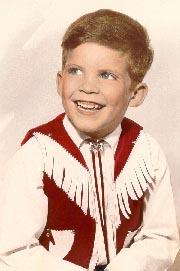Panelists
 |  |  |  |  |
| Stowe Boyd | Sylvia Marino | JP Rangaswami | Andrew McAfee | Ed Yourdon |
| /Message | Sylvia Marino | Confused of Calcutta | The Impact of Information Technology (IT) on Businesses and their Leaders | The Yourdon Report |
Bullets
- Something interesting to follow: The impact of blogs on politics.
- Is this the de-SAP-ification of the enterprise?
- Andrew: No. Sees a small minority of organizations implementing these things and a huge portion of the organization that's hostile to it.
- Stowe: Draws parallel to companies being blindsided by the Internet.
- Ways of keeping up:
- Techmeme
- Andrew: "Trying to determine what is going on in the world by reading newspapers is like trying to tell the time by watching the second hand of a clock." ~Ben Hech
- What about companies' fears of openness?
- A little role-playing as illustration:
- I don't want my customers telling one another about my product's flaws.
- I don't want my employees telling people what it's like to work here.
- I want control.
- Answers:
- Sylvia: Heads already in the sand. Consumers are already talking about the flaws in your product. And employees are already talking in the hallways.
- JP: The last thing you want to do when you have fear is to drive the discussion underground.
- Ed: Cluetrain Manifesto. Also notes that Cluetrain Manifesto coauthor David Weinberger has just today released a new book: "Everything is Miscellaneous".
- Stowe: Converstaion is going on already. You don't control your brand any more.
- Andrew: Agree with others regarding the Internet. But on the Intranet, you have arbitrarily precise control. JP's approach is enlightened, but the last thing that many companies want is to provide a forum for their employees' complaints.
- A little role-playing as illustration:
- How would you Web-2.0-ize Cutter's web site?
- JP: First thing, release the content. Remember the Cluetrain: "Markets are conversations." Stop calling it content. Make it accessible to all. Then allow ratings and recommendations.
- Andrew: Baby steps. Slap a Google search on the site. Make the site as useful as possible
- The kind of arguments put forward today against Web 2.0 are like the arguments that were put forward against email, the Internet, instant messaging, the Blackberry, the iPod.
- Andrew tells a great story about JP and Eliot Spitzer, which I should really write up instead of just telling you how great it was.
- Will our systems be connected?
- Andrew: No, no, no, no. Technologists have been telling us for years that our systems would be connect by OO, web services, SOA, and now the semantic web. Computers are like old testament gods: all rules and no mercy. Quotes Norbert Wiener (American mathemetician, 1894-1964): "The world of the future will be an ever more demanding struggle against the limits of our intelligence, not a comfortable hammock in which we can lie down to be waited upon by our robot slaves."
- Ed: Lots of experiments taking place in the Web 2.0 world. Only a few will survive. One of the best things about Web 2.0 is the APIs made available by companies like Google for mashups. Speaking of mashups: Yahoo! Pipes.
- JP: Paying someone to move data that belongs to me is something that's in the past.
- Andrew: Standard is the only one-word oxymoron in the English language.
Web 2.0 sites that the panel mentioned
- Stumbleupon
- Techmeme
- Yahoo! Pipes. (After the panel, Sylvia told me if I like Yahoo! Pipes then I'll love SnapLogic.)
- OpenID


No comments:
Post a Comment